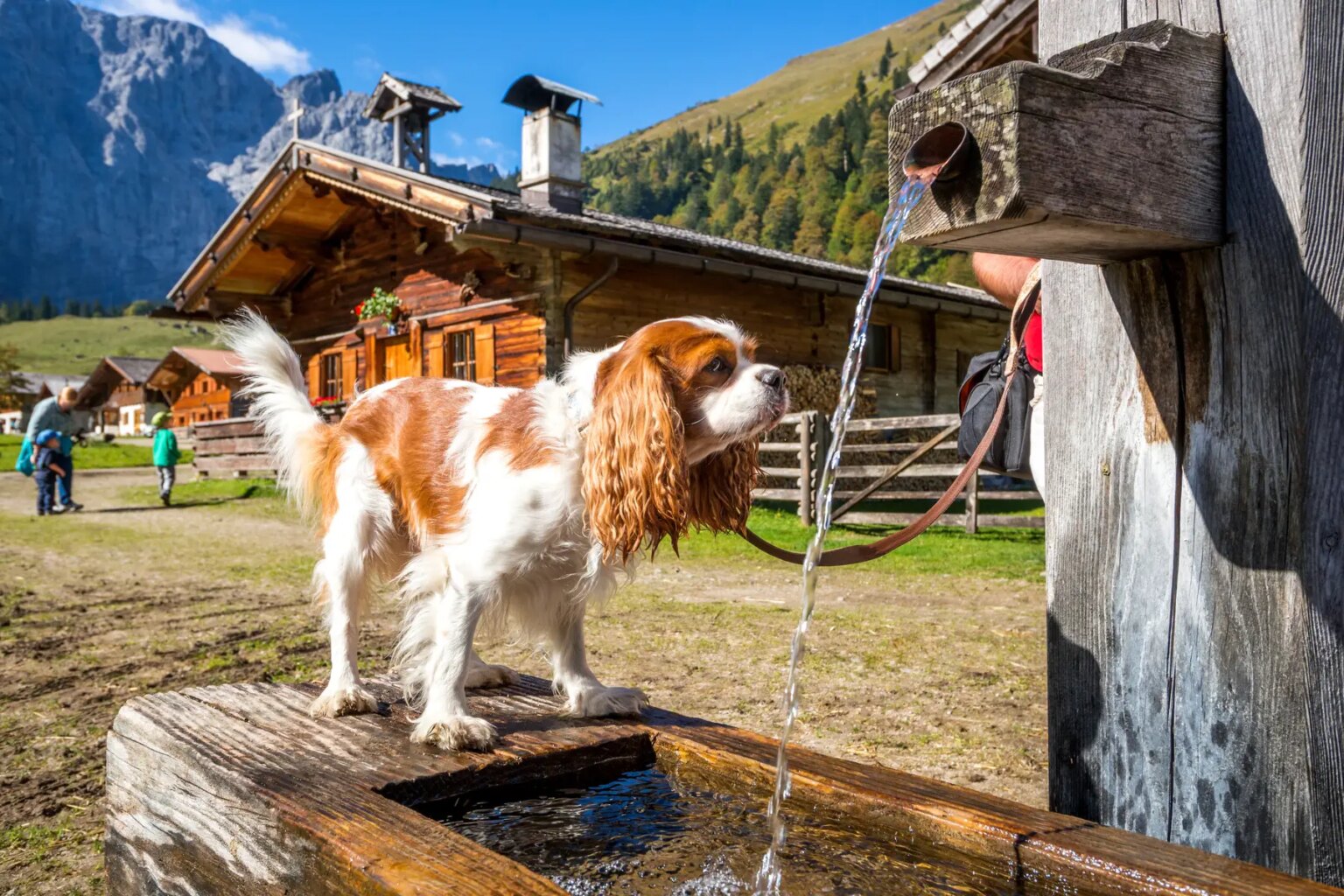For most people, pets are as much a part of the family as any other member. And when preparing to move abroad with your family, your to-do list will undoubtedly involve getting your furry friends into the country safely, too.
Fortunately, importing pets into Austria is a straightforward process. That said, there are quite a few steps to getting all your ducks in a row, so to speak. With this in mind, this helpful guide provides everything you need to know about importing pets into Austria, including the following:
Sirelo
It's no secret that moving abroad can be stressful. Sirelo's team of removal advisers is here to help. They provide five free quotes from international shipping companies so you can find the best options at the best prices. Take the stress out of your relocation to Austria with Sirelo.
Pets in Austria
Fortunately for animal lovers, pets are common and well-loved in Austria. In fact, there are more cats than children in the country. Furthermore, all modes of public transport allow dogs. In reality, there are very few animals that are banned as pets in Austria; for example, some dangerous reptiles and spiders as well as monkeys and big cats.

The pet ownership laws are exceptionally clear in Austria. In addition, animal rights are a top priority. In summary, keeping pets in Austria is a simple process for a pleasurable addition to your family.
Pet immigration rules and restrictions in Austria
When relocating with pets, you’ll need to have all your documents ready. After that, bringing your pets into Austria with you is a breeze. In brief, you’ll need to pass customs clearance, have your vaccinations and health certificates all set, and have microchipping in place. It’s important to note that Vienna, Linz, Salzburg, Innsbruck, Graz-Thalerhof, and Klagenfurt are the only border crossings in Austria where you can bring pets into Austria.
To pass customs clearance, your pets must be at least seven months old, unless you’re in the EU. Furthermore, you’ll need proof of employment (for the owner, unless Spot, in fact, has a job). If your pet has a passport, you should bring that along, too. If not, you will need to use your own passport. In addition, you’ll need the EU Health Certificate.
If you are moving from a non-EU country, you’ll need a veterinary export certificate written in English if German is not possible. The health certificates will verify that your pet has had all its vaccinations within a year before arriving in Austria. In addition, you’ll need an International Health Certificate from your vet before you leave.
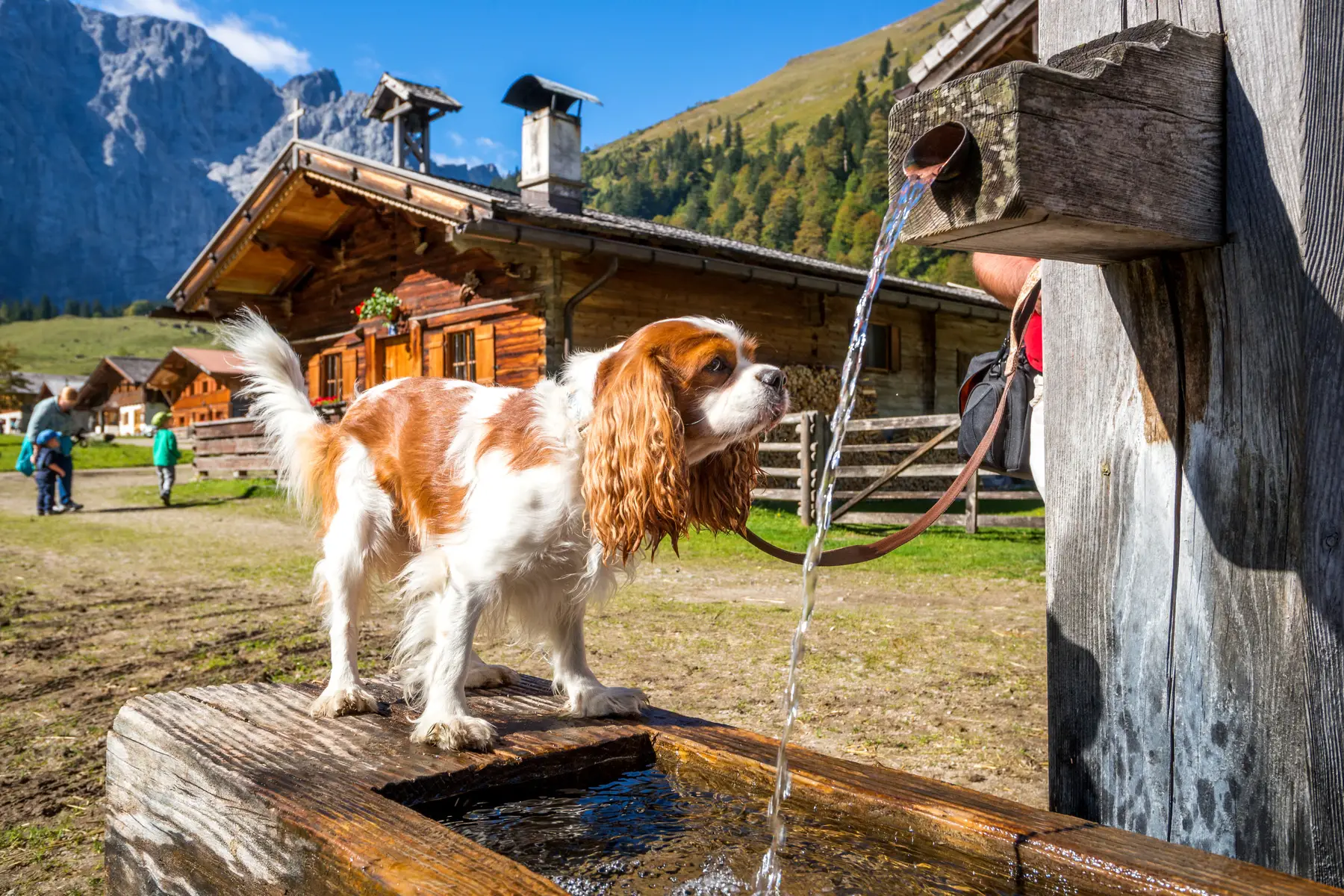
You don’t need a tapeworm treatment for your pets when entering Austria from any country. Birds, tropical fish, reptiles, amphibians, rodents, and rabbits do not need rabies vaccinations. However, these species should have a health certificate to enter Austria.
Interestingly, there is no restriction on the number of pets you may bring into Austria. However, if you are traveling with six or more cats, dogs, or ferrets, there are conditions in order to transport them under non-commercial regulations. This includes that they must be six months or older and attending a competition or show. Otherwise, you’ll have to use commercial transport.
Pets you cannot bring into Austria
Austria’s rules on pet ownership are sensible and fair. That said, there are some animals that are banned from being imported into the country. This includes monkeys, bears, and big cats, as well as dangerous reptiles and spiders. However, this doesn’t include boa constrictors or non-venomous pythons. Generally speaking, Austria allows most pets.
To be sure, if your pet is an exotic species, for example, a turtle or a parrot, you should check it is not protected under the Convention on International Trade in Endangered Species of Wild Fauna and Flora (CITES).
Visas, passports, and travel documents
Travelers need an EU Health Certificate to take any pet into the EU. This is valid for travel throughout the EU for up to four months and covers you until you leave the EU; or until your animal’s rabies vaccination expires. This form requires visiting an accredited veterinarian within 10 days of your arrival in Europe.
As your vet provides the endorsed EU Health Certificate, the cost will depend on your home country. Even throughout the EU, for example, the cost of visiting a vet varies widely. You can pay as little as €20 or over €100.
Once you’ve arrived in Austria, if you have a dog, cat, or ferret, you can get an EU Pet Passport. Only EU vets can issue these. But once you get one, you can travel easily throughout Europe. It will also save you from having to get a new EU Health Certificate every time you travel. It’s a simple trip to the vet and the passport will contain all the details of the animal and ownership. They may even put in a fetching picture of your pawsome friend. After all, that’s everyone’s favorite part of their passport, right?
Microchipping
In brief, it is compulsory for all dogs, cats, and ferrets in Austria to be implanted with microchips. However, if your pet has an identification tattoo from before 3 July 2011, this remains valid.
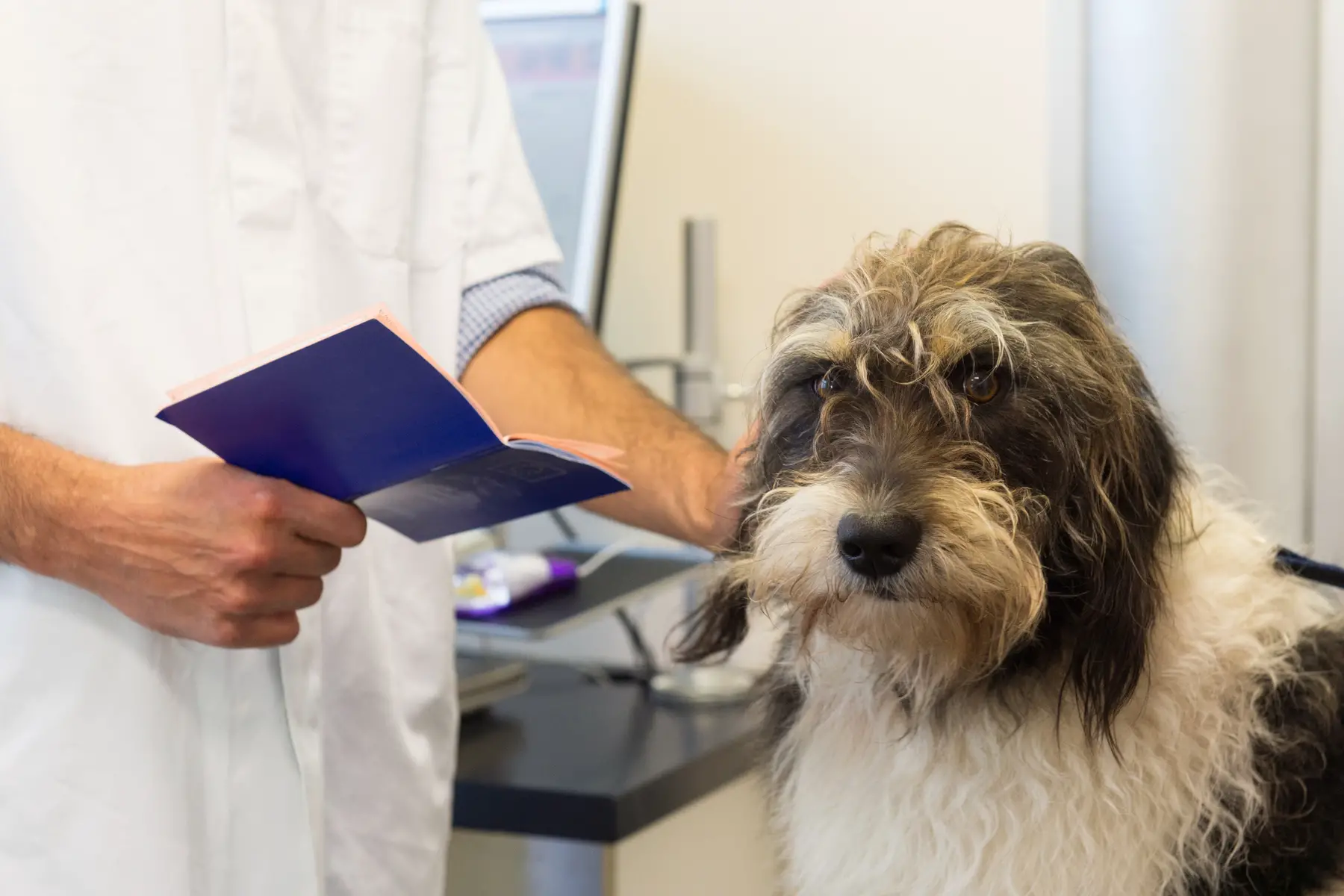
Animals should have an ISO Standard 11784 or Annex A to ISO standard 11785-compliant microchip. Additionally, the pet must have the microchip implanted before the administration of the rabies vaccine. Furthermore, the chip code or the tattoo must be registered in the Pet Passport.
Generally, veterinary clinics worldwide provide microchipping services. The price in Europe ranges from between €25 and €100. Sometimes, animal shelters offer free microchipping. Therefore, it might be worth looking into, depending on where you currently live.
Vaccinations
All pets entering Austria must have an original Rabies Certificate signed by a vet. On average, one-year rabies vaccinations cost between €25 and €100. Therefore, it’s worth shopping around a bit if you have the time. Once your pet has had the vaccination, your vet should mark this in your pet’s passport.
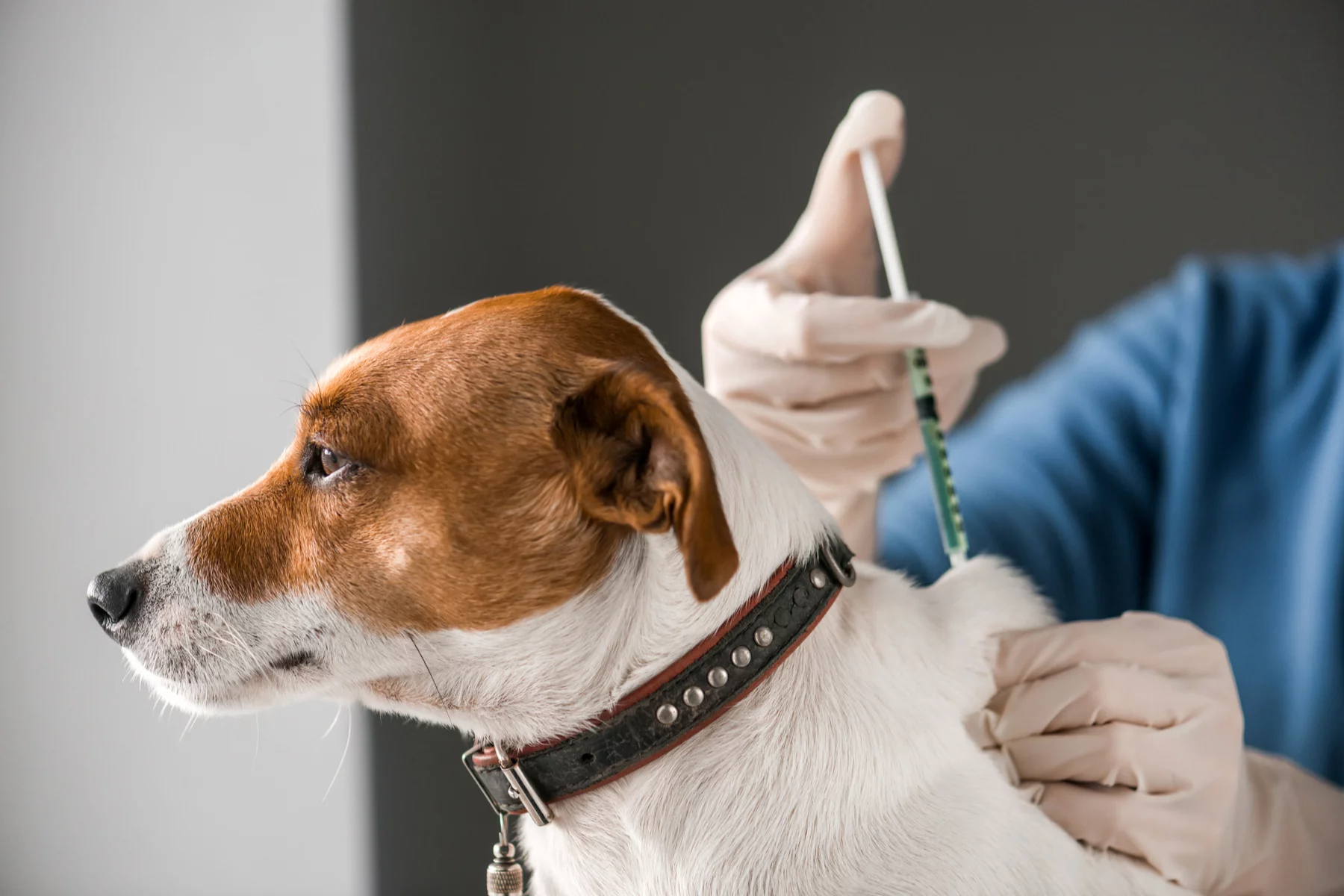
If you are bringing in a puppy or kitten under three months of age, it’s not possible to vaccinate them this young. Thus, you are only allowed to bring them in if you are in another EU member state or a rabies-controlled nation. If you are coming into Austria from a high rabies country, your pet must be seven months of age or older.
Traveling to Austria with pets
With each different mode of transport for arriving into Austria, different rules apply for bringing animals with you. Under all circumstances, it’s important to keep your pet documents on you at all times to reduce any potential issues.
Whichever mode of transport you choose, think about whether your pet is unfamiliar with long journeys. If yes, you may want to talk to your vet about prescribing a sedative to ease your furry friend’s discomfort.
Traveling by car usually requires a transport box, particularly for smaller pets, or strapping animals down in case of an accident. Train travel regulations are up to the individual railway. Typically, this will involve using a pet container for smaller animals, and a muzzle and lead for larger. Depending on the size of your pet, it may need a ticket.
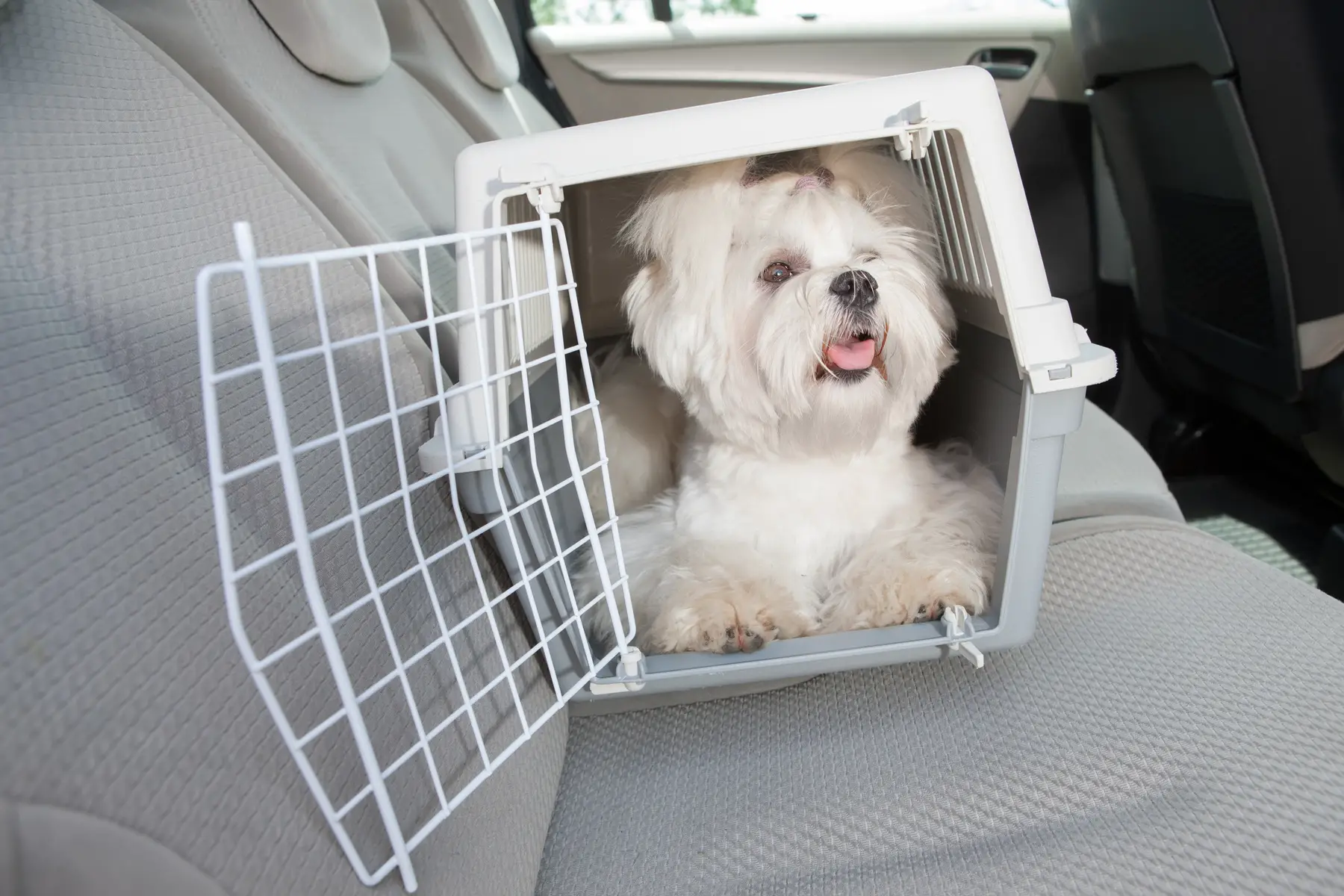
Flying is certainly the most complicated method for importing pets to Austria. It’s also the most stressful for animals. Each airline has different rules, so you’ll need to check them individually. However, the IATA (International Air Transport Association) has established carriage rules for animals that all European airlines must follow; so this is a good place to start. The site even provides recommendations such as booking travel on a weekday when there is more space and staff have more time than during busy weekends. Fees vary vastly according to distance, size, and weight.
Relocating to a new country can be stressful enough, without having to relocate with pets. With this in mind, if your budget allows, having a pet relocation service handle all the doggy red tape for you is a good option. Firms such as Pet Relocation, Air Transport Animal, and Schumacher Cargo may be of help.
Airline pet container requirements
Transporting a pet by air requires a container that has to fulfill these specific requirements:
- The animal must have enough room to stand, turn, and lie down
- Adequate ventilation
- A solid and leak-proof floor
- Contains containers for food and water, with outside access for filling
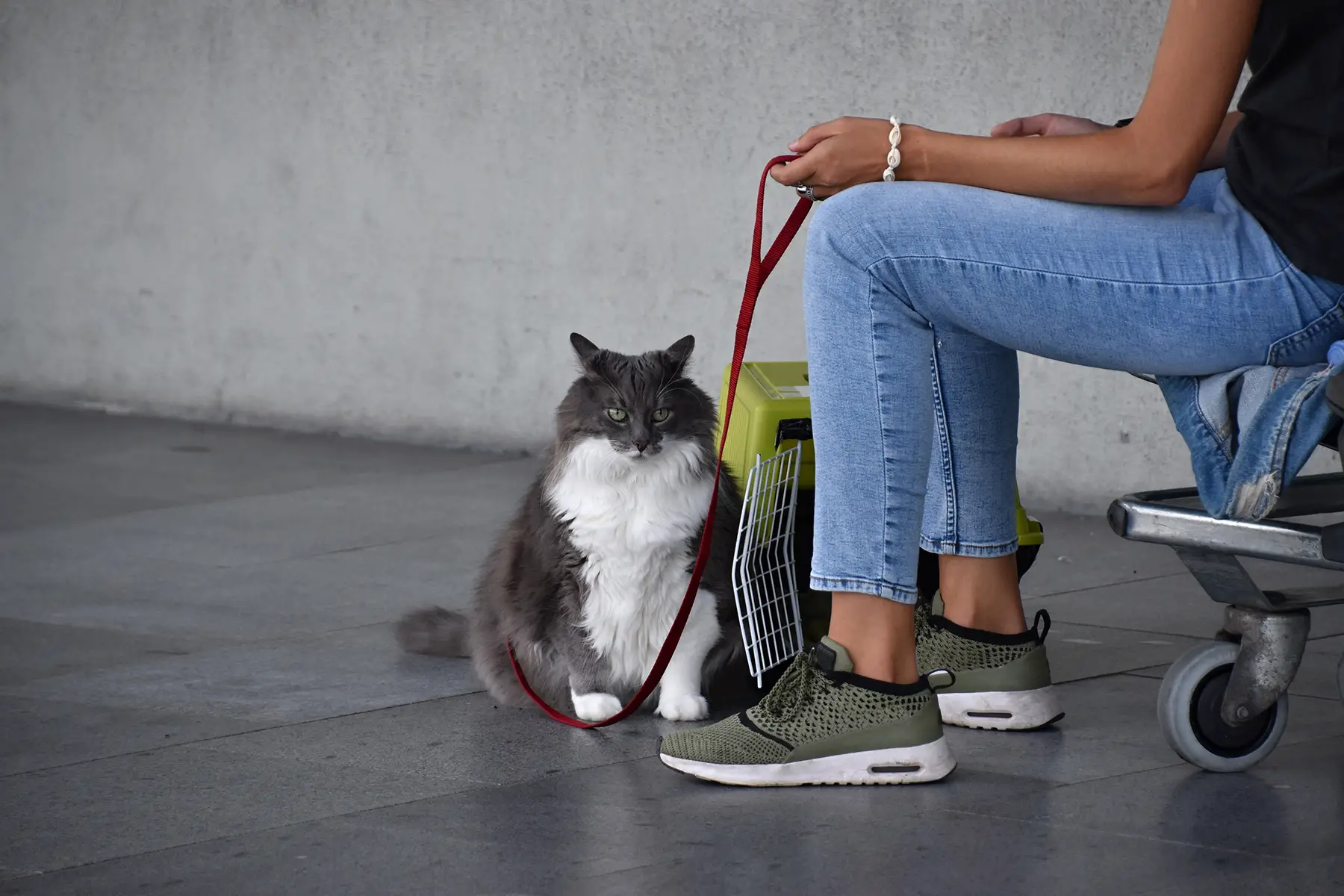
Once you know the size of the carrier you need, they are easy to purchase. Typically, pet stores stock pet carriers, but you can also get one from Amazon and other sites.
Pets in the cabin
In the past, most airlines allowed smaller pets and guide dogs in the cabin with their owner. However, nowadays, space is at such a premium that you may find airlines are unable to be as helpful as before. The bottom line is, contact the airlines first so you can make an informed choice about how you travel.
Pet arrivals in Austria
Principally, if you have met all the entry requirements and completed the paperwork, you will not need to quarantine your pet.
Each municipality has different procedures for dog registration. However, you can make the process easier for yourself by registering online through Hundeanmeldung. Note, this online form is in German.
It is important to be aware that if your dog is a certain breed, which was originally bred for fighting and is thus considered more dangerous or difficult to handle, the owner and dog must pass the Vienna Dog License exam. This exam is German-only, costs €20.84, and must be taken within three months of arrival. The purpose of the exam is to make sure the owner can handle their dog safely. As a bonus, after passing the exam, you are exempt from paying the Hundeabgabe (dog tax) for one year.
Pet insurance in Austria
When relocating to Austria, pet insurance is sure to be on your mind with the myriad of other things that might potentially go array during your move. But if you have all your insurance in place, you can rest easy and concentrate on all the other things that need doing. Pet insurance can include liability insurance to protect against property damage and personal injury. You can also get your furry friend insured for accident and operation, as well as veterinary costs which can be extensive.
Austria’s independent price comparison website, durchblicker, can help you search for the best pet insurers and get quotes so you can make an informed decision about what you need.
Keeping a pet in Austria
Keeping a pet in Austria is easy once you fulfill all the requirements. Essentially, the country is incredibly pet-friendly. The government has instilled a Protections of Animals Act which legally requires owners to carry a muzzle and a leash.
By three months of age, you must register your dog and pay dog tax. The annual dog tax is €72 per year for the first dog and €105 for each additional dog. In some regions, pets will receive a dog tag, however, it isn’t typically mandatory that they wear them.
Penalties for breaking the laws on bringing pets to Austria
Austria takes its pet policies seriously. You must keep all dogs, even little ones, on a lead or muzzles in crowded public places. This includes public transport, outdoor events, and restaurants. In fact, you’ll see police performing checks on dog owners to see if they are carrying muzzles. They also do spot checks (terrible pun, but funny) for dog handling licenses and microchips. If you don’t have them, you’ll face a fine.
Fortunately, Austria boasts plenty of pet-friendly areas throughout the country. Vienna, for instance, has 169 off-leash dog parks where they can get their exercise. These are marked by a sign that says ‘Hundezone’. This also makes it easier for owners to keep their dogs out of banned areas like playgrounds and cemeteries as well as some nature reserves.

Chiefly, it is mandatory to clean up after your dog. Austria has made this easy with cities like Vienna, for example, providing dispensers with waste bags. Anyone who doesn’t comply faces a fine, which has risen to €50.
Dogs are welcome on all forms of public transport (trains, trams, and buses) in Vienna. In addition, small dogs in a fully-enclosed bag or container can travel free of charge.
Useful resources
- Federal Ministry Republic of Austria – for the complete information on the rules and regulations for pets in Austria
- Pettravel.com – a worldwide resource for pet travel
- Bringfido.com – resource on traveling with pets
- Stadt Wien – Veterinäramt und Tierschutz – veterinary and animal welfare office in Vienna
- Tierarzt – emergency veterinarian location service of Austrian veterinary surgeons
